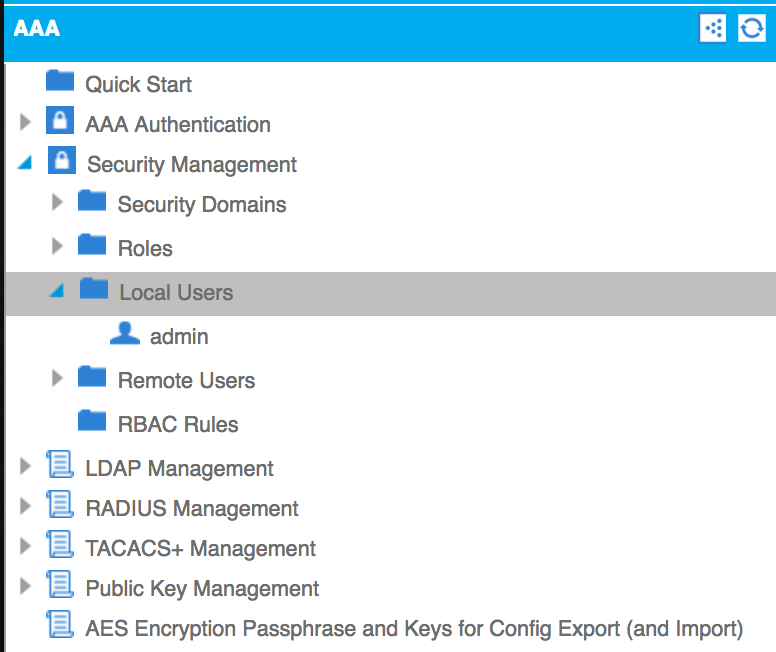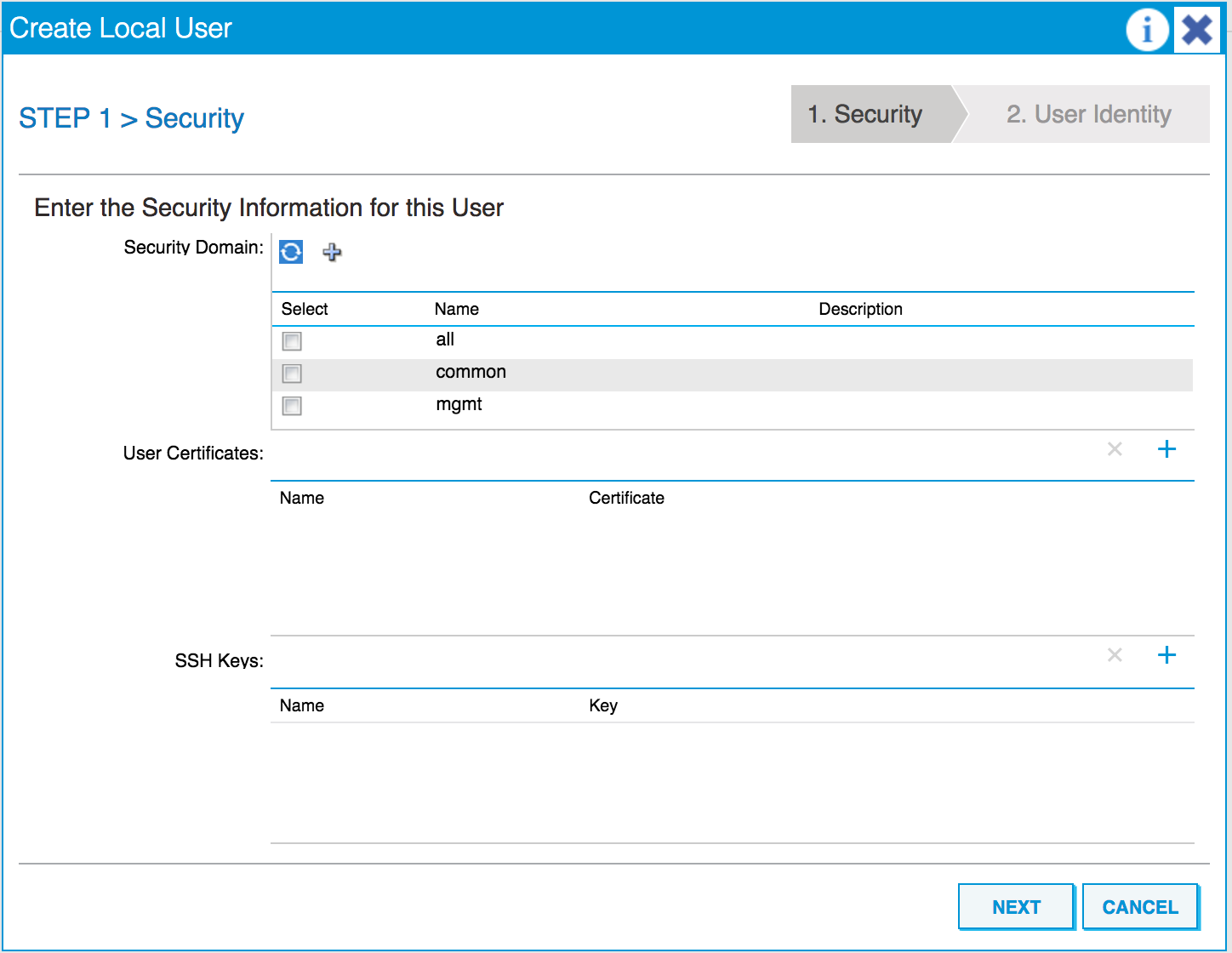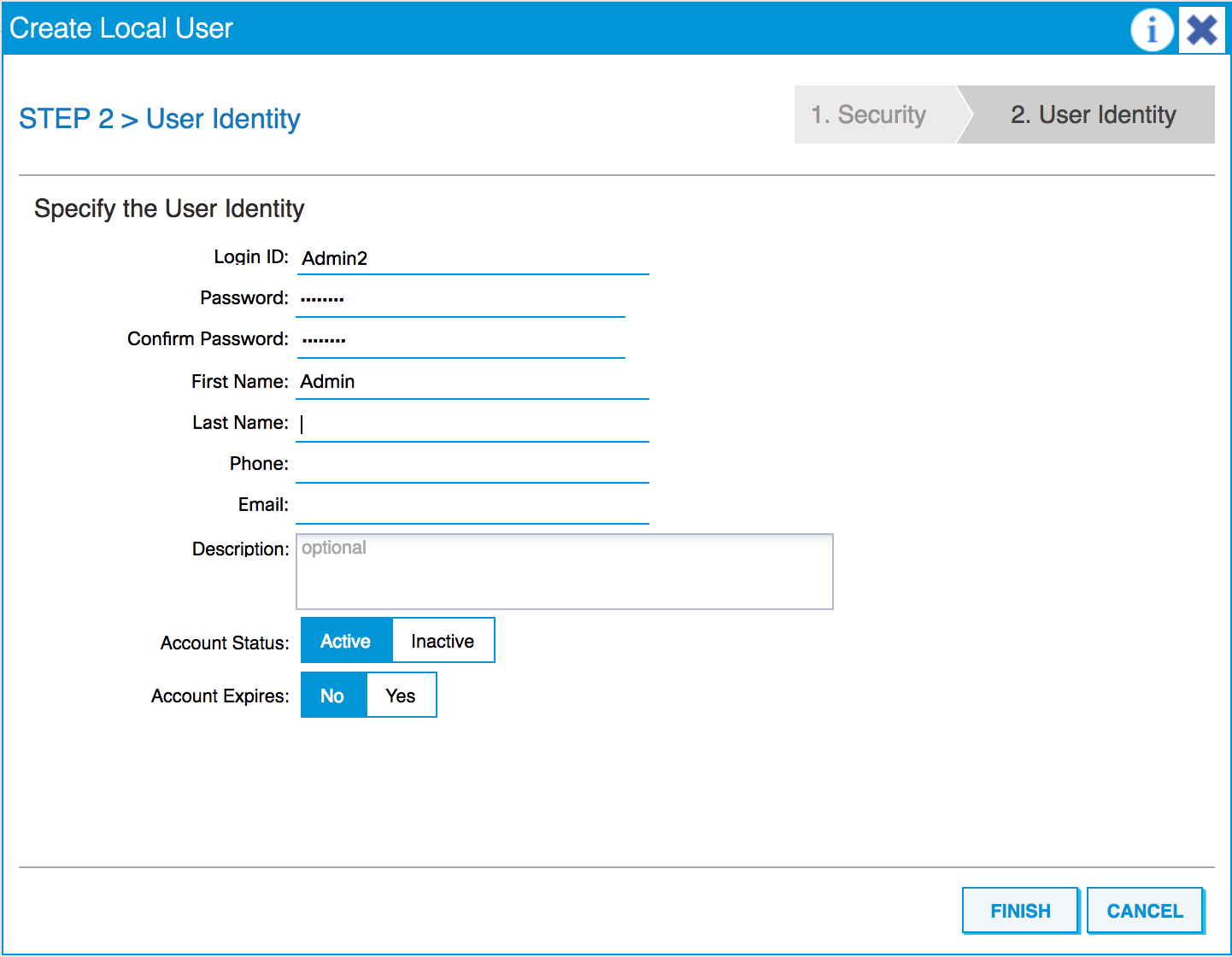Creating local users
Local users are the easiest way to start segregating users and leveraging some form of accountability. We will have a bigger administrative overhead, and clearly, this would not be the preferred solution. Instead, one would look to a centralized system, such as RADIUS or LDAP. However, local users are a good place for us to start.
How to do it...
- Navigate to
Admin|AAA|Security Management|Local Users.

- Click on
Actions|Create Local User. - Select a
Security Domain, or leave it at the default (all unticked).

- Click on
NEXT. - Enter the
Login IDand thePassword, and fill in any other fields if desired.

- Click on
FINISH.
How it works...
We can test the new user's access by connecting to the APIC with SSH:

The connection is successful. But what if need to limit access to a particular tenant? For that, we need to create a security domain.







































































